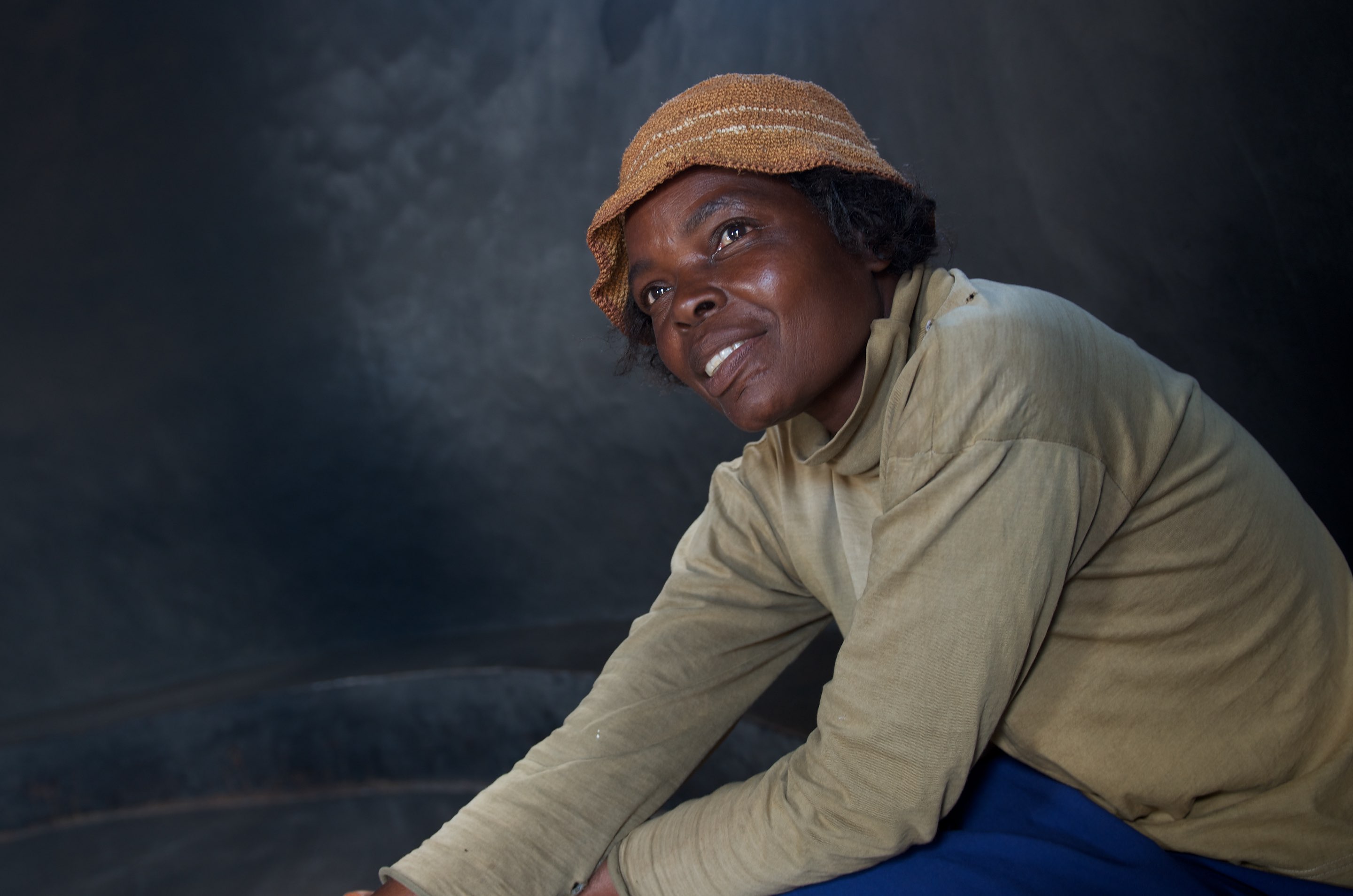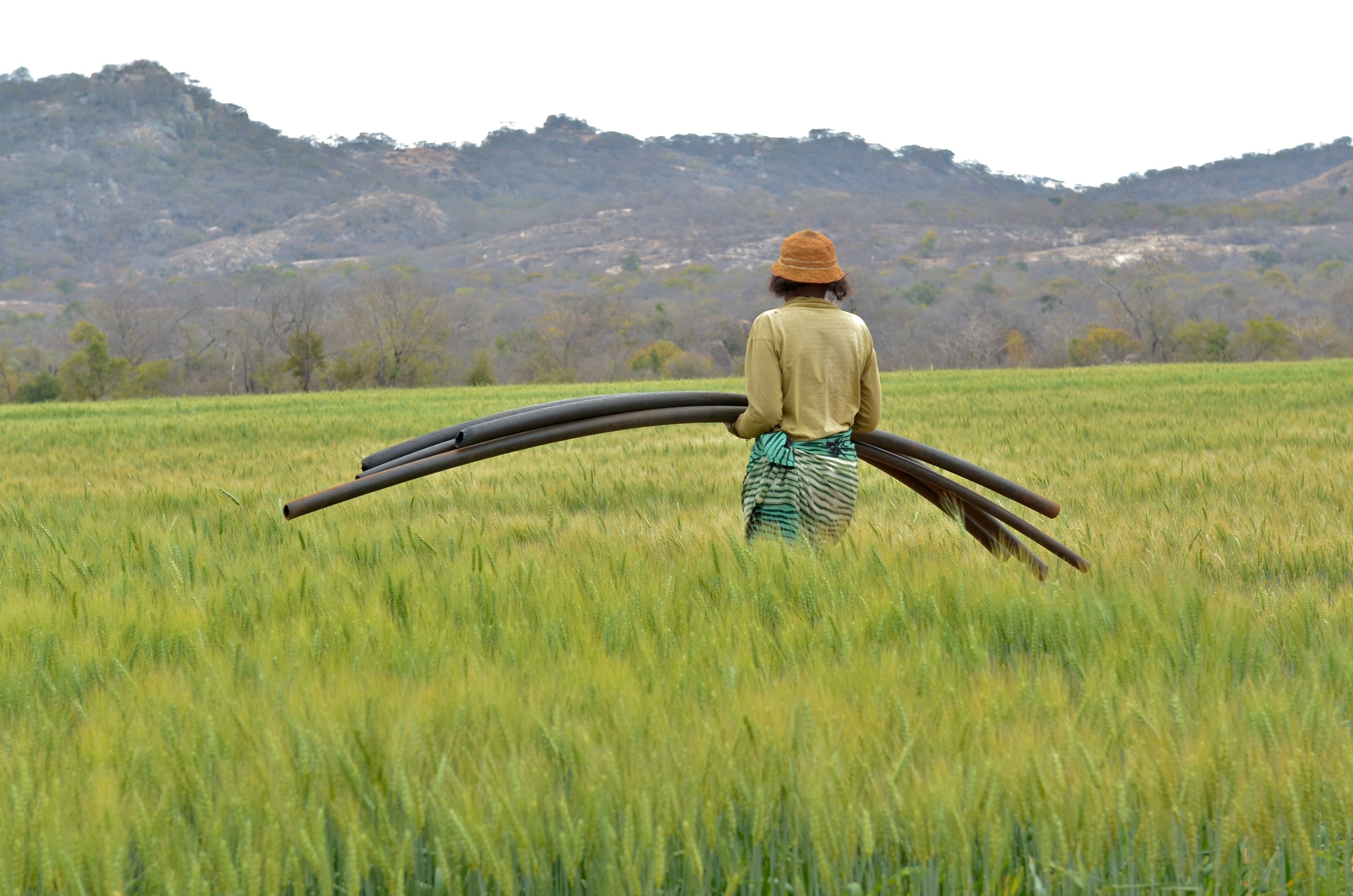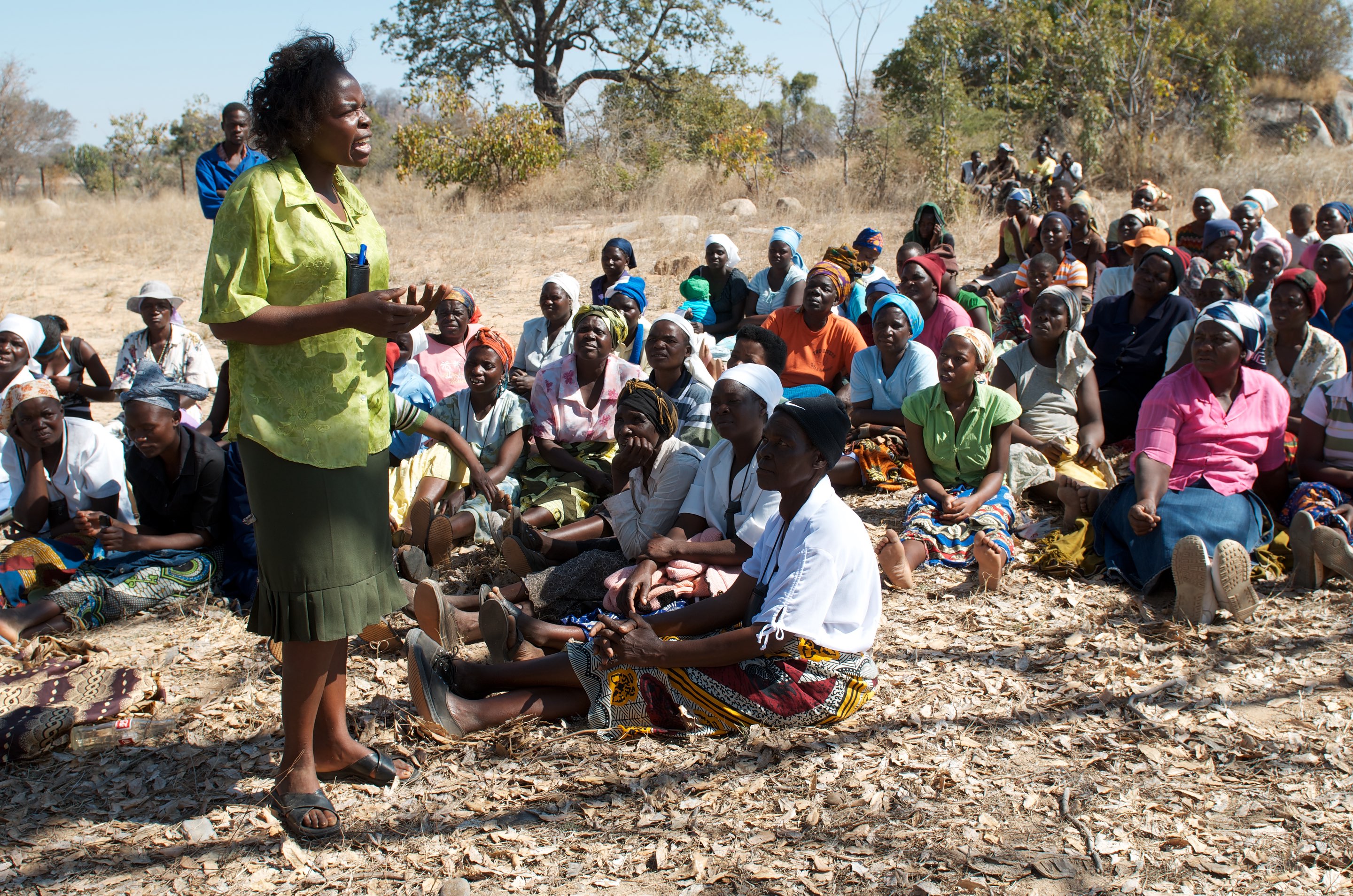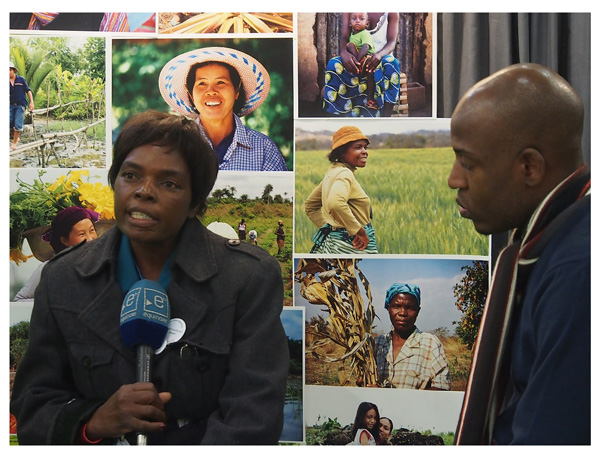Ipaishe Unlimited
If there is one person on the planet who embodies what Oxfam is all about, it’s Ipaishe. Her resourcefulness, resilience and compassion in facing the challenges of extreme poverty are inspirational.
Ipaishe travelled from Zimbabwe to Paris with one purpose. As soon as she landed at Charles De Gaulle airport, she headed straight for the Elysee to deliver a 1 million signature petition to French president, Francois Hollande, urging world leaders to put the most vulnerable people first at the UN climate talks.
There to speak out for the poorest families who are worst affected by climate change, her story demonstrates the potential women have to end poverty.
But Ipaishe has had to work hard throughout her life for her right to do so.
Ipaishe married her husband in 1984, and her life was full of hope. Together, they taught children in a local school and Ipaishe was highly respected in her community. But as they looked towards starting a family, she came under pressure to end her teaching career.
“Our culture and tradition in Zimbabwe expects women to focus more on household chores and duties. I had to leave teaching and focus more on providing food for my family – which meant farming, cattle herding, and looking after both my own son and also my husband’s family, his three younger brothers and three younger sisters.
“My husband and I were only given a small piece of land as a young couple, which was not enough to feed the whole family – and on top of that we didn’t have enough money to buy the things we needed to increase our crop yield.
“I spent my days and nights knitting jumpers, brewing beer to sell and crushing peanuts by hand to make peanut butter to sell. I worked for better-off families on their farms – and I earned just about enough to send my son to primary school. But there wasn’t much for anything else.”
Then Ipaishe lost her husband, when her son was just 10 years old. With her grief came further hardship – and as a woman, Ipaishe faced new pressures to conform to traditional values.

Loss, hardship and starting again
“I was welcomed with open arms back into my father’s home, who stood by me, and encouraged me to look at farming as a business of my own.”
– Ipaishe, Zimbabwe.
“Widowhood brings a stigma in our country, especially at such a young age, and I was under pressure from traditional and cultural expectations to marry my husband’s brother, whom I raised when I married my husband.”
“I didn’t – so I was sent back to my birth family, but was forced to leave my son behind. The stigma meant I could never marry again.”
Thankfully Ipaishe’s father was supportive: “I was welcomed with open arms back into my father’s home, who stood by me, and encouraged me to look at farming as a business of my own.”

“Now I feel like I have a huge opportunity – and responsibility – to raise my voice for me, for my country and for the whole nation of Africa.”
It was at this point that Ipaishe became more involved with Oxfam – setting up an irrigation system which has increased crop yields by 240%. It means Ipaishe has enough food, can pay for medical bills and even has enough to support her extended families.
Her potential to change lives didn’t stop there. Ipaishe started using her teaching skills again in health care training, working with Oxfam and other organisations to educate her community on HIV and the prevention of other diseases.

Seeds of change
 But storm clouds loom on the horizon for Ipaishe and farmers like her. A changing climate brings with it more frequent extreme weather, causing many crops to fail and livestock to die. So in December 2015, Ipaishe took to the world stage to tell leaders what they needed to do, for the sake of thousands of people made hungry by climate change.
But storm clouds loom on the horizon for Ipaishe and farmers like her. A changing climate brings with it more frequent extreme weather, causing many crops to fail and livestock to die. So in December 2015, Ipaishe took to the world stage to tell leaders what they needed to do, for the sake of thousands of people made hungry by climate change.
“I am an empowered and employed woman, and very passionate about sharing and exploring ways to support other women, young widows and young generations who are currently being suppressed by the cultural and traditional expectations we’re subject to.” – Ipaishe, Zimbabwe.
“Now I feel like I have a huge opportunity – and responsibility – to raise my voice for me, for my country and for the whole nation of Africa.”
Ipaishe’s powerful words are worth pausing on for a moment. If she had lived her life within the limits of what society expected, Ipaishe may never have had the chance to do something so significant, for those worst affected by climate change. If every woman across the world could live their life without limits – free from fear of violence, abuse and discrimination – how many more could go on to change lives, and help bring an end to poverty for good?
“My message to my community, and all women and people across the world, is to work hard to get through the many difficulties we face.”

